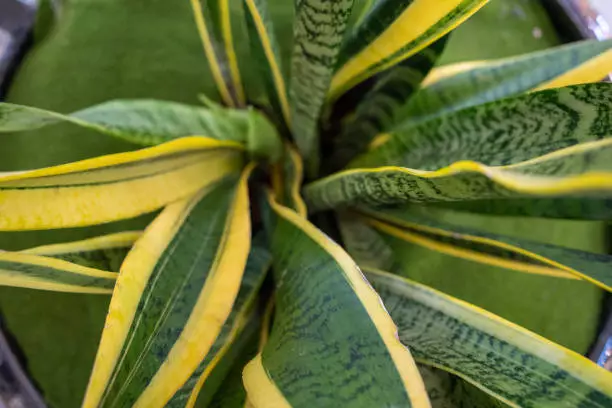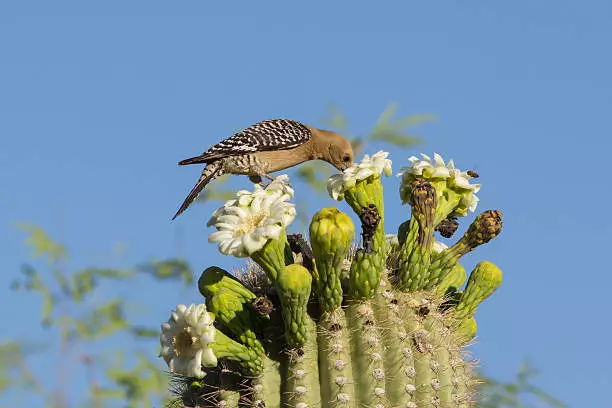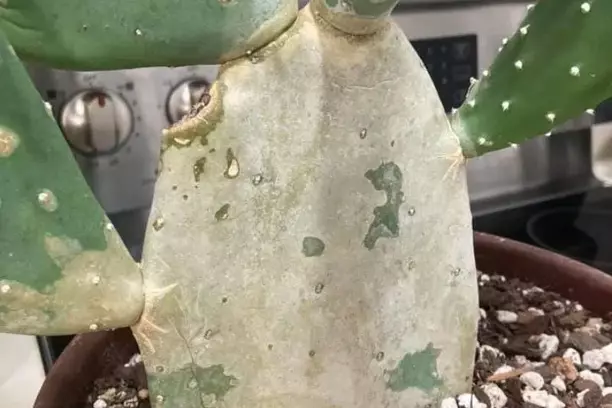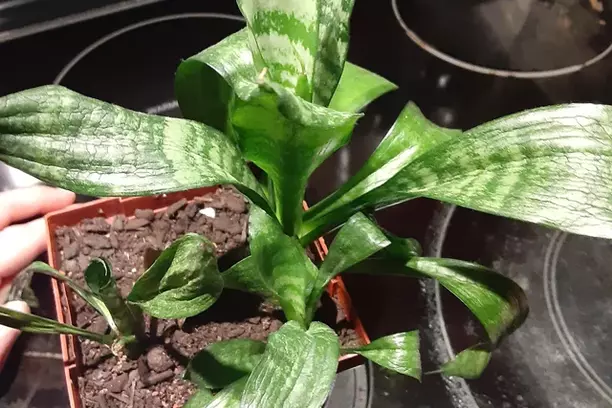Dill is an annual herb that’s grown by many gardeners across the globe, mostly for its culinary and medicinal uses. The plant’s leaves are a popular food seasoning ingredient due to their distinctive aroma, while the seeds can be consumed to effectively provide relief from throat inflammation.
What you may not know- however- is that dill is also one of the best companion plants for a wide variety of garden vegetables, herbs, and ornamental plants. The herb attracts various beneficial insects that prey on common garden plants and vegetable pests.
In the sections below, we explore which garden plants you should (or shouldn’t) pair with dill, and why it’s so important to carefully consider your dill companion plants.
Why you should choose dill companions carefully
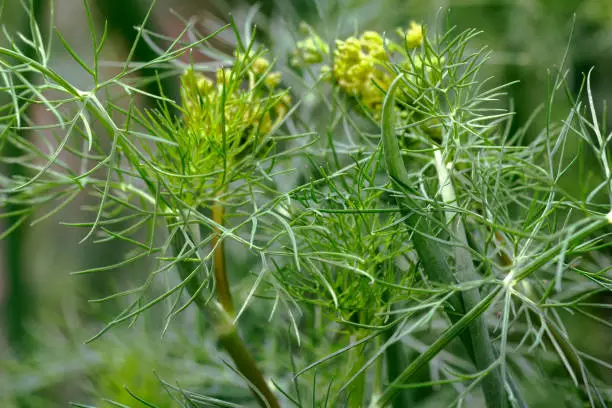
Dill is a fast-growing, fast-maturing plant with a short lifespan. It takes just 90 days for the shrub to fully mature up. As such, you should consider only pairing it with garden vegetables and plants that are fast growers – too.
However, that doesn’t mean that you can’t use dill as a companion plant for your slow growers. All you need to do is plant a few dill seedlings every week for a few weeks to ensure an all-season dill supply that will help keep pests off your plants until they’re mature.
Another reason why you should carefully consider your dill companion plants is that dill itself is vulnerable to a variety of diseases that can pass on to nearby plants. For instance- the shrub is vulnerable to leaf spot disease- which is caused by various microbes and fungi.
If you- therefore- plant dill as a companion to garden plants that are also vulnerable to leaf spot disease, the fungal spores may be spread by wind to the nearby vegetables, consequently resulting in the same leafspot disease problem for them as well.
Good dill companion plants
1. Brassicas
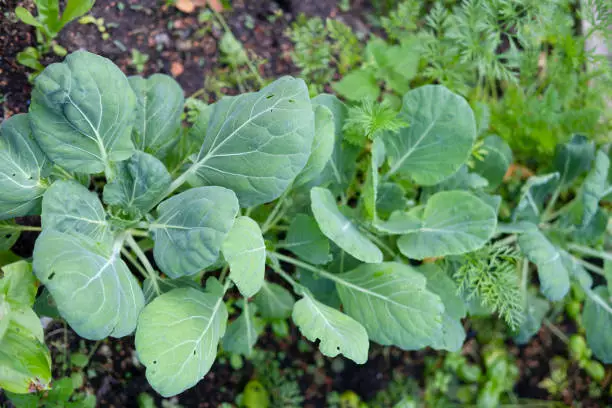
Common brassica varieties include cabbages, cauliflower, kale, and brown mustard. Brassicas are vulnerable to a variety of pests including cabbage worms, cabbage loopers, and cabbage moths.
Cabbage worms are especially harmful as they feed on the human-edible brassica foliage, leaving your vegetables with only the stalks. You can introduce dill into your herb garden as a companion plant to keep your brassicas healthy and pest-free.
2. Asparagus
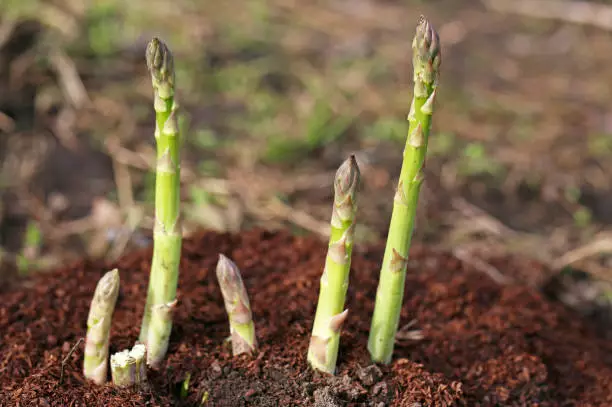
Asparagus is usually vulnerable to aphid infestations. Not only will the pest insects turn your asparagus foliage to a blue-green shade, but they’ll also affect plant growth by feeding on root sugars. However, planting dill as an asparagus companion will attract beneficial insects that prey on aphids, including ladybugs and lacewings.
3. Tomatoes
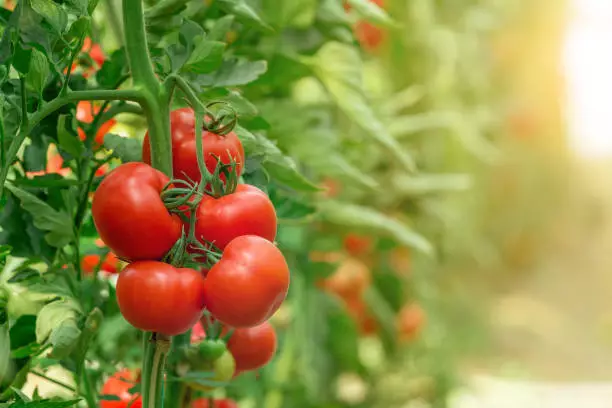
Tomato hornworms are quite troublesome, as they bore holes into mature tomato fruits. In its immature state, dill will boost the health of your tomato plants, as it keeps the hornworms at bay. Once dill matures up though- you may want to keep a bit further from your tomatoes, as they begin to inhibit the fruit plant’s growth at this point. Keep in mind- however- that dill- just like other herbs within the graveolens family, doesn’t respond too well to being transplanted.
4. Cucumbers
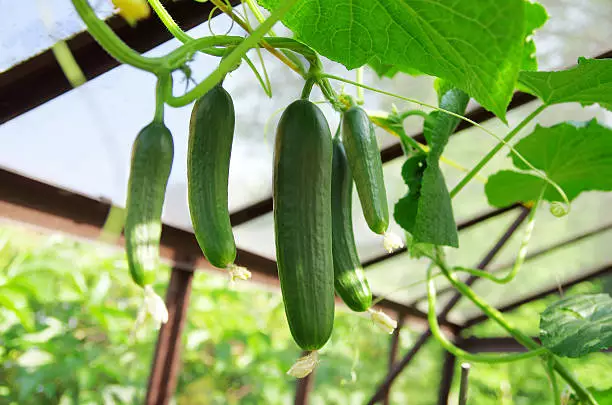
For garden plants and vegetables that are vulnerable to spider mites, including cucumbers and hibiscus, dill is usually a good companion.
Spider mite invasions change the appearance of cucumber plants to unsightly, webbed, yellow-spotted foliage. Fortunately for you- if you plant cucumbers- dill has a repelling effect on these bugs.
What should not be planted with dill?
Despite being one of the best companion plants for a wide range of garden plants, dill isn’t a good fit for everything. For instance, you should avoid planting dill as a companion for carrots or for that matter- any other crops of the Umbellifer family. This is because dill is a close cousin of Umbellifer varieties, and these two closely-related plants can cross-pollinate to produce a hybrid with an unsavory taste.
What’s more, dill can also hamper the growth of your carrots. Nevertheless, it’s still not uncommon to see dill being planted as a trap crop alongside other Umbellifer varieties like celery and fennel. This is because dill attracts pests that would otherwise do damage to your umbellifer crops.
As soon as the pests invade the dill, you should burn them down for two reasons:
- Burning kills adult pests, as well as their larvae/eggs.
- Burning the dill trap crops also ensures that they no longer continue being a hindrance to the growth of your Umbellifer plants. As earlier mentioned, dill isn’t a good companion plant for Umbellifer varieties, especially in its fully matured state.
What herbs are great companions for dill?
chervil
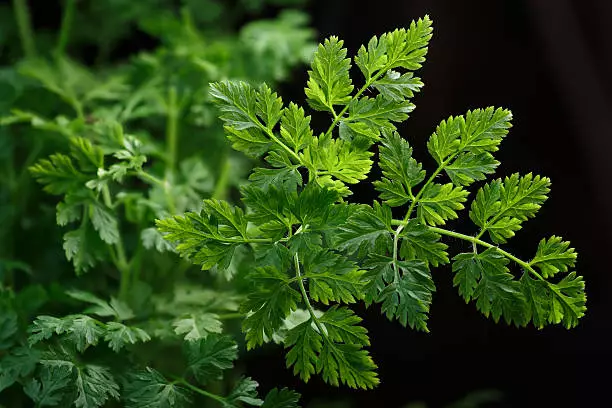
Chervil, just like dill, is a beneficial herb that attracts parasitic wasps- which are prolific pest predators. When planted together- therefore- you’ll be according your garden vegetables even more protection against pests.
